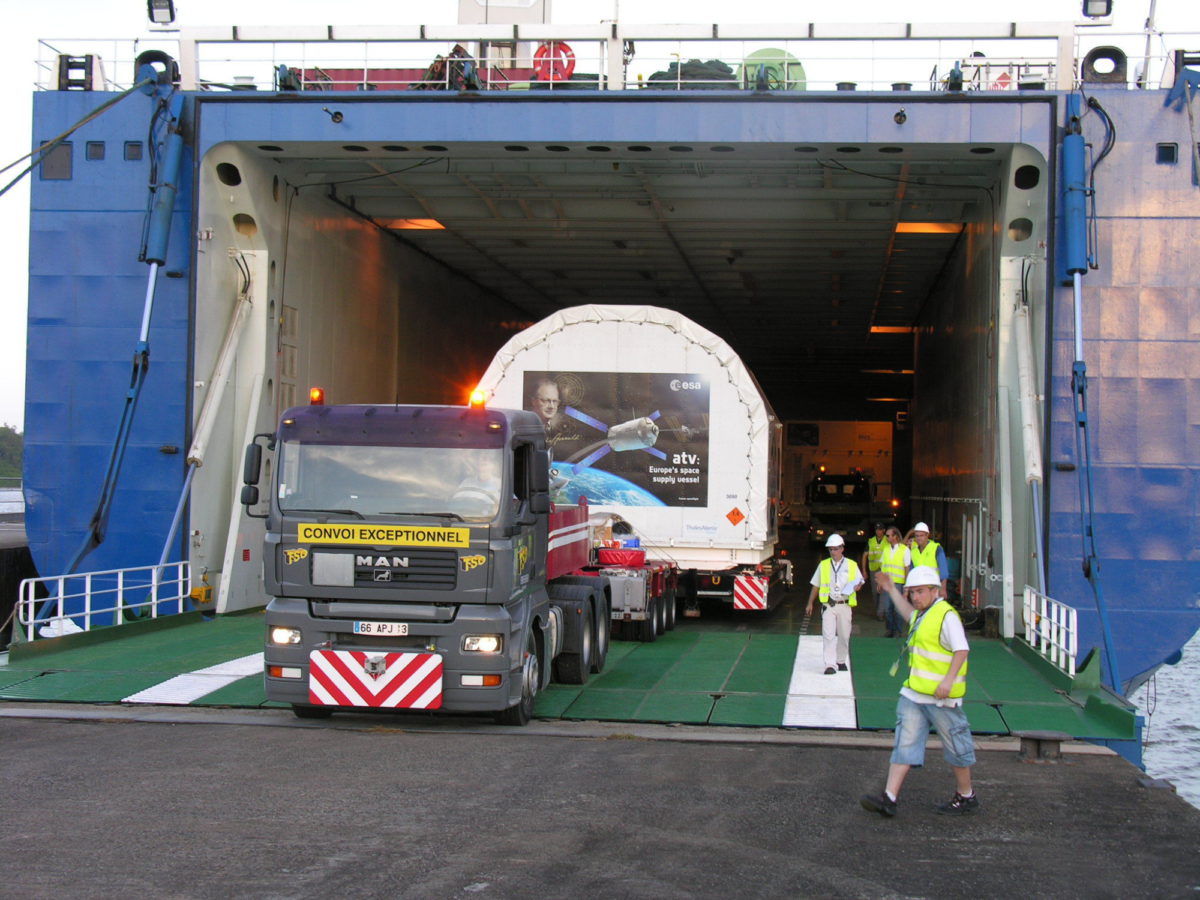Pablo Gutierrez-Marques • Sep 06, 2011
Express Mail to Low Earth Orbit
Pablo Gutiérrez-Marqués has offered to provide an occasional European perspective on space news for the Planetary Society Blog. Pablo is the Dawn mission's Framing Camera Operations Manager, based at the Max Planck Institute for Solar System Research in Germany. --ESL
Concern about the supply chain for the ISS has been growing steeply over the last months. The final flight of Atlantis turned the ominous shadow of a future without the shuttle into a glum reality. And only a few weeks later, we have witnessed, with some degree of a shock, the first failure of a Progress mission in many years.
Although this event triggered all kinds of alarms on the strategic danger of depending on a single provider for cargo to the station, the situation is not as scary as it looks. Two weeks ago the European Space Agency (ESA) delivered to its spaceport in French Guiana the module Edoardo Amaldi, the third of the Automated Transfer Vehicle program, scheduled for launch in early 2012. Each of these unmanned spacecraft is capable of launching into low Earth orbit up to 8 metric tons of cargo and fuel, approximately three times as much as a Progress delivery, and they are not the only backup. The Japan Aerospace Exploration Agency (JAXA) has developed and successfully launched the first two units of the H-II Transfer Vehicle with an approximate capacity of 6 metric tons. Even with the lower launch rate of these modules compared to the Russian system, they have accounted for almost half of the cargo to the ISS in the last two years.

While it is clear that supplies to the station are not in imminent danger thanks to international cooperation, it is also obvious that the situation is far from encouraging: it still takes many months and a lot of money to plan a launch, and without additional capacity we are hopelessly bounded by the margins required for a safe provision of the lab. So do not expect to see regular space mail deliveries any time soon.
Private consortia are almost ready to roll out two cargo spacecraft, Orbital's Cygnus and Space-X's Dragon, which could dock at the ISS before the end of the year. But with the shrinking NASA budget and the political turmoil about space exploration funding, there is no saying of when Little Red Riding Spacesuit will be able to bring any food to her astro granny.
Let us hope that the decision makers in our nations realize that the space race is again at a tipping point that can open the gates of space to humanity or have us stranded on Earth for another twenty years. It is in the moments of great need when the most ingenious solutions are found. We can face the challenge, enjoy the research and profit the result, or we can hide behind our allegedly empty pockets and continue to yearn for the stars.
Support our core enterprises
Your support powers our mission to explore worlds, find life, and defend Earth. You make all the difference when you make a gift. Give today!
Donate

 Explore Worlds
Explore Worlds Find Life
Find Life Defend Earth
Defend Earth

